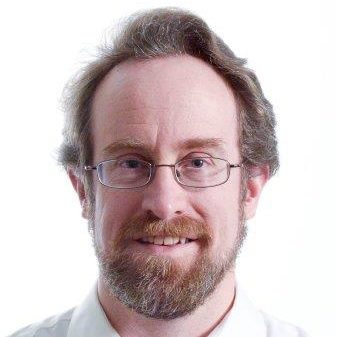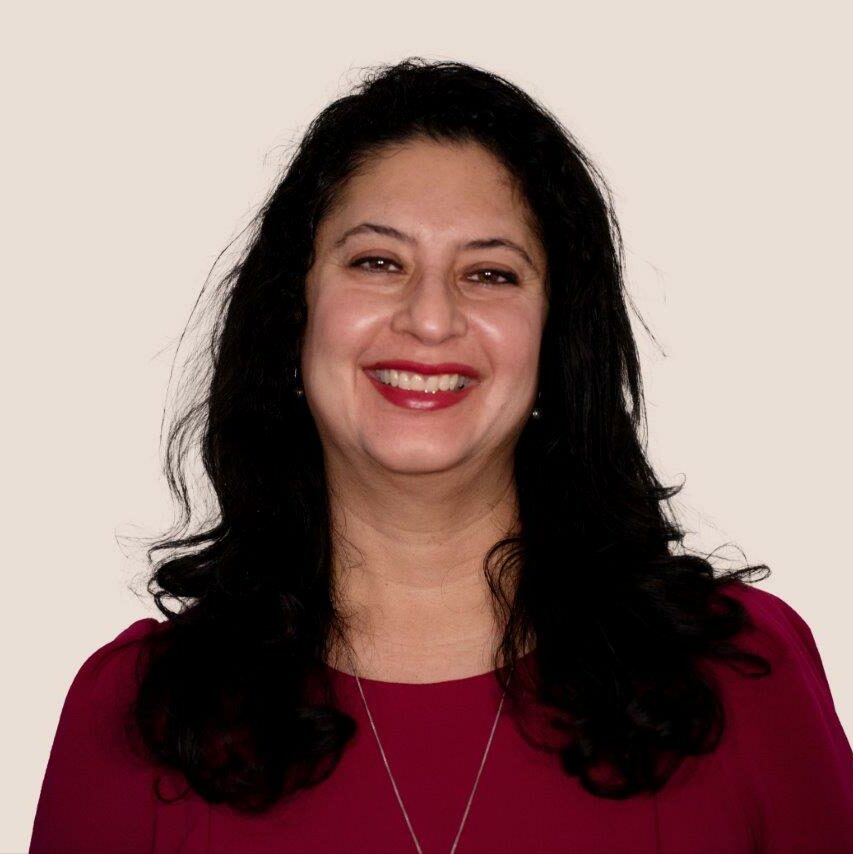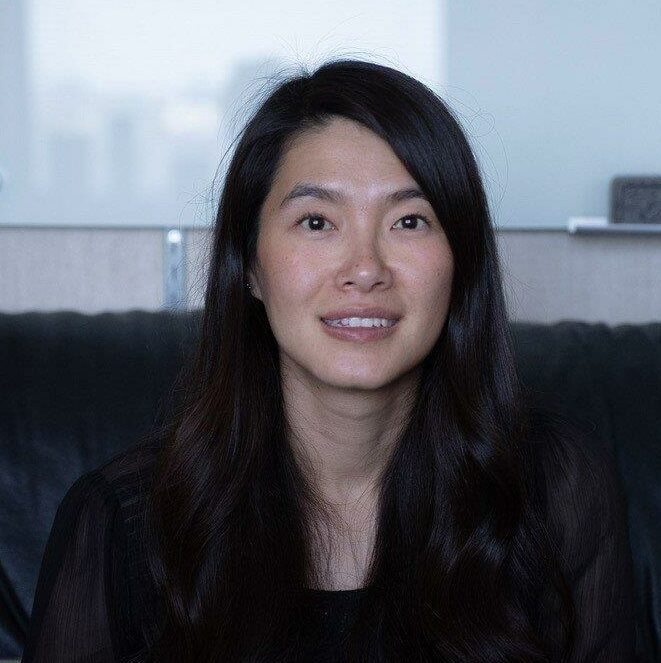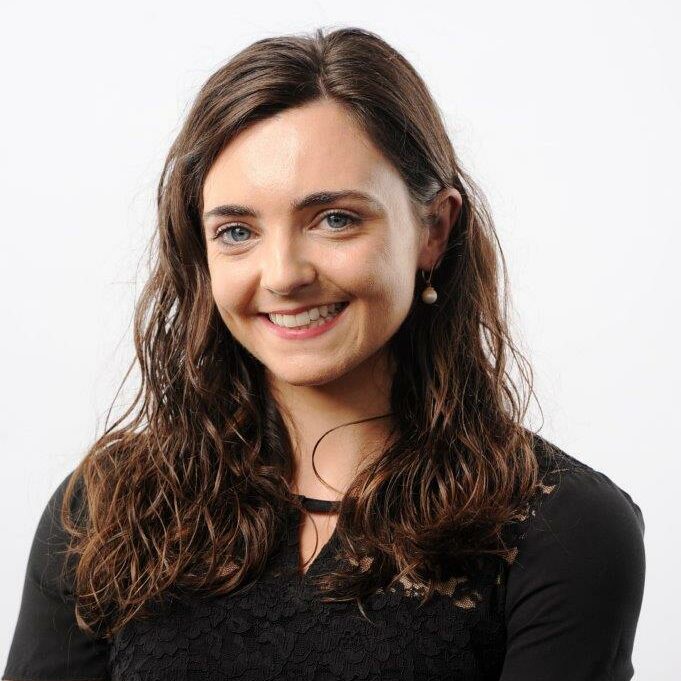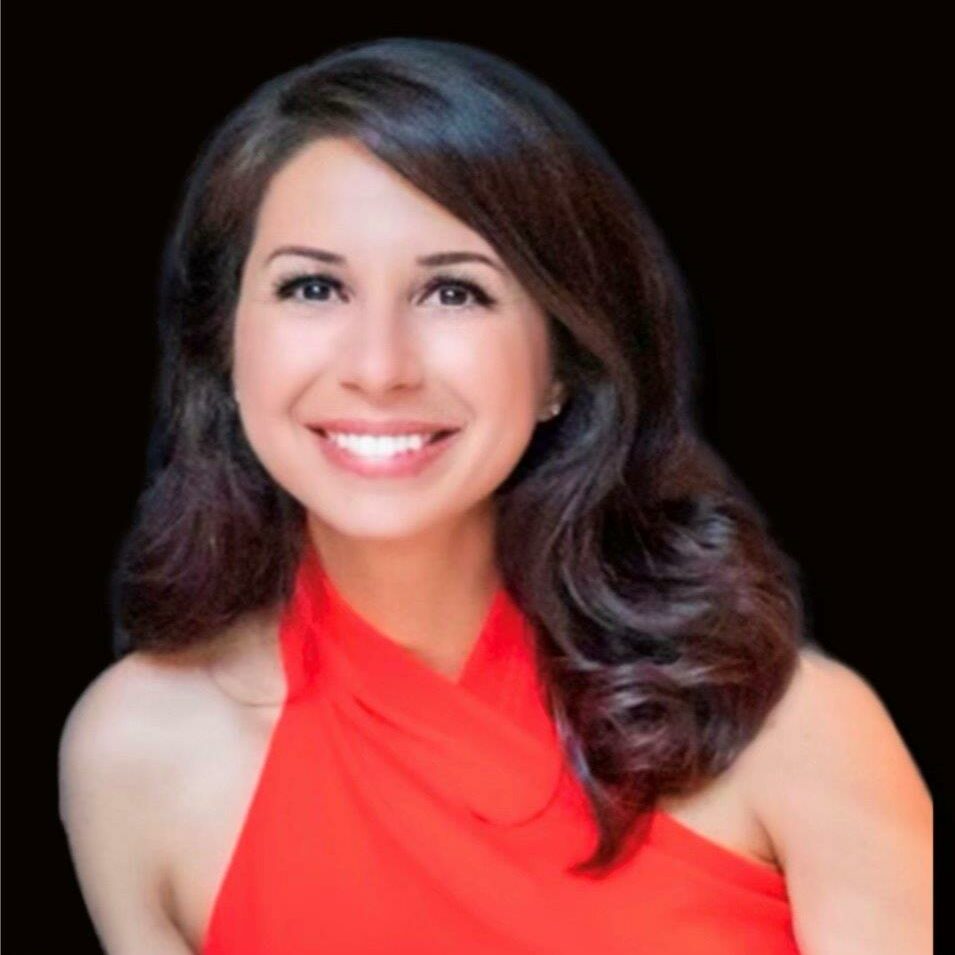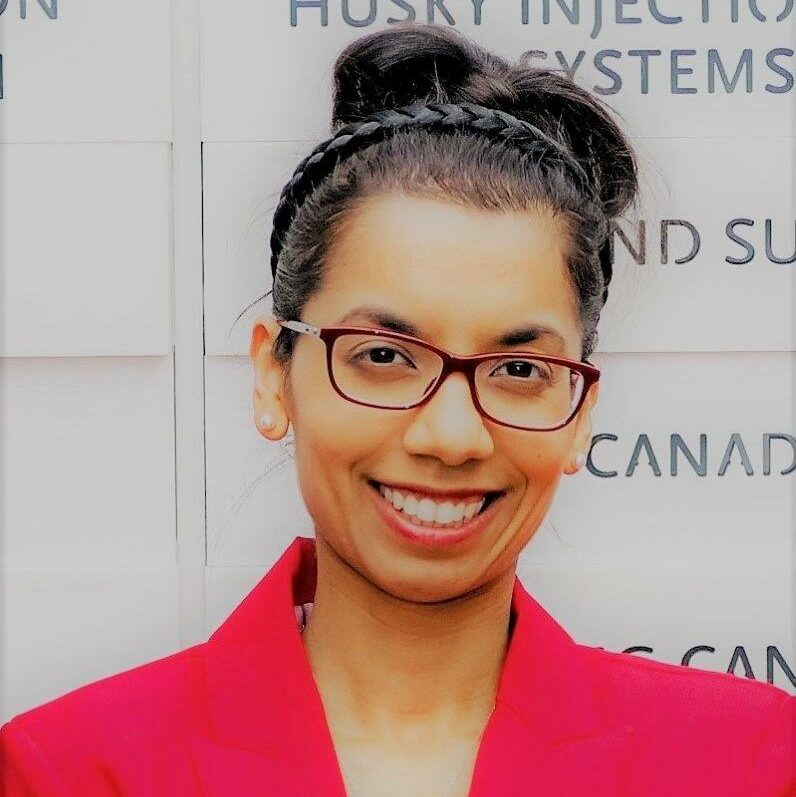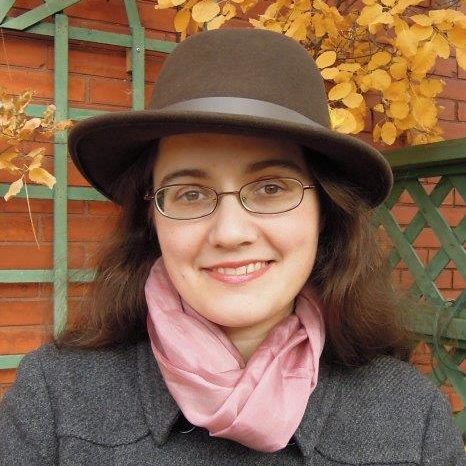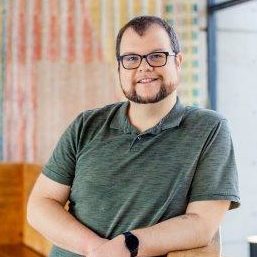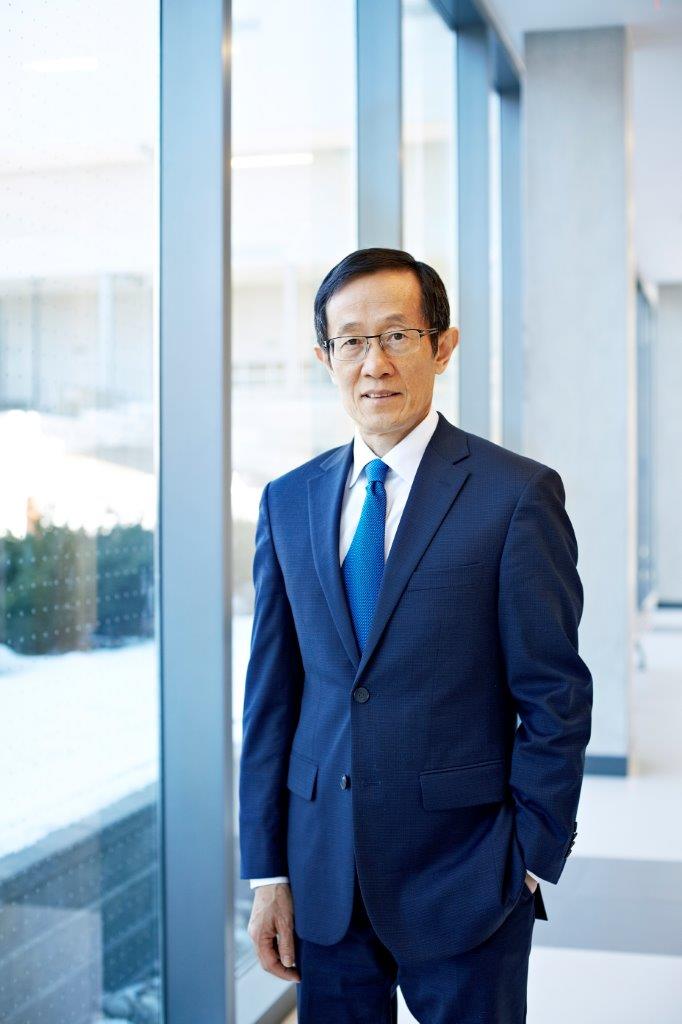
A Message from Dean Rui Wang
I feel intensely proud to look back on 2023 and reflect on what we achieved together as a Faculty. There were many special moments and accomplishments for us.
We continued to create a culture in the Faculty of Science where we supported and listened to each other, worked together to solve challenges, encouraged diversity, and celebrated our individual and collective achievements.
In this Annual Review, I am excited to share some of those achievements.
We are developing new programming to meet the demands of today’s world in science and technology. In fall 2024, we will be launching two biotechnology programs at York University’s Markham Campus, as well as introducing new micro-credentials for science students and professionals to upskill for career success. We are also continuing to advance global engagement by strengthening our international partnerships and creating meaningful opportunities for students at York and abroad to connect and learn from one another.
We have been working to enhance decolonization, equity, diversity, and inclusion efforts in our teaching, research, operations and community outreach. For instance, our Science Engagement Programs collaborated with Skills for Change to deliver a series of online and in-person STEM workshops for black high school youth.
Our researchers continued their pursuit of advancing knowledge through discovery, including solving a longstanding antimatter mystery, measuring the city's air pollution in collaboration with NASA, improving AI machine learning algorithms for healthcare applications, and more. Collectively our faculty members were awarded $20.2 million to continue advancing scientific innovation.
Our faculty members and staff worked diligently to engage and support our Science instructors in enhancing excellence in teaching and learning, including equity, diversity, and inclusion in the classroom. As well, our instructors pursued projects to enhance accessibility and student experience in labs and classrooms.
Our Faculty is committed to fostering scientific discovery and tackling global challenges to create positive change in our world. And we are so lucky to have talented researchers, teachers and staff on our team to help us achieve this. Together, we are all building science for the future and making York Science a great place to learn and conduct research.
Rui Wang
Dean, Faculty of Science
York University
YORK SCIENCE HIGHLIGHTS
Updates from our Department Chairs
By the Numbers
180
Faculty members
(full-time)
111
Staff members
(full-time)
20
Undergraduate programs
9
Graduate programs
84
Postdoctoral fellows
and visitors
4,463
Undergraduate students
64% Canadian
36% International
(full-time and part-time)
423
Graduate students
62% Canadian
38% International
(full-time and part-time)
5
Departments:
Biology
Chemistry
Physics & Astronomy
Mathematics & Statistics
Science, Technology & Society
1
Division:
Natural Science
3,802
Undergraduate students to whom Faculty of Science provides service teaching
18
Fellows and College members of Royal Society of Canada
(current and emeriti)
31
Bethune College-affiliated student clubs
$76.6 million
Total annual budget
$4.0 million
Total fundraising amount
Annualized results since the time of the 2022 Annual Review report (as of April 15, 2024)
$20.2 million
Total research funding revenue
23
Canada Research Chairs, York Research Chairs, and Endowed Chairs
3
Organized Research Units based in or led by the Faculty of Science:
Centre for Bee Ecology, Evolution and Conservation
Centre for Research on Biomolecular Interactions
Risk and Insurance Studies Centre
Emergency Mitigation, Engagement, Response, and Governance Institute
4
Research facilities and equipment centres based in the Faculty of Science:
1 Core Analytical Facility (NMR Spectroscopy, Microscopy, and Mass Spectrometry)
2 Technical Shops
1 Science Store
25
Partnerships with international institutions for academic and research collaboration
More Highlights
HONOURS & AWARDS
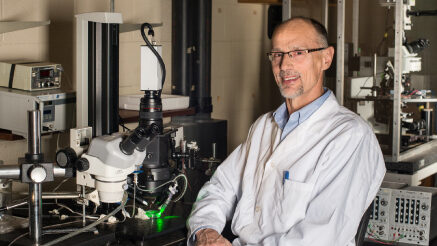
Professor Peter Backx, Department of Biology, was elected as a Fellow to the Canadian Academy of Health Sciences, considered one of the highest honours for individuals in the Canadian health sciences community. Backx holds the Canada Research Chair in Cardiovascular Biology. He has been at the forefront of research designed to better understand the molecular and ionic underpinnings of the heart’s electrical and contraction properties, particularly in relationship to disease. His work has bridged information gaps related to cardiac arrhythmias, particularly atrial fibrillation, and led to new treatments for these conditions.
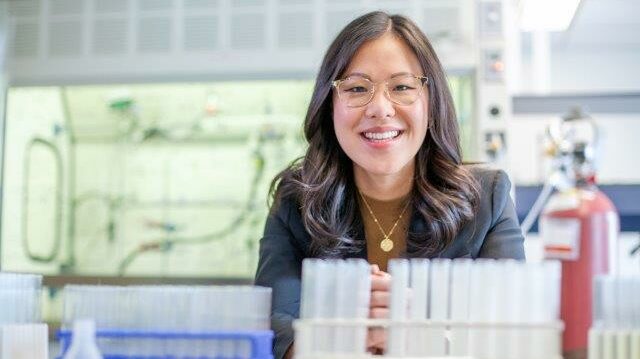
A research paper led by Professor Christine Le, Department of Chemistry, was honoured with the 2023 Outstanding Publication of the Year Award from The Journal of Organic Chemistry. The award recognizes a paper from the previous year that demonstrates creativity and impact in the field of organic chemistry, with a focus on early-career researchers. Le’s study, titled “Synthesis of Carbamoyl Fluorides Using a Difluorophosgene Surrogate Derived from Difluorocarbene and Pyridine N-Oxides,” presented an innovative approach to making molecules called carbamoyl fluorides in an efficient way that avoids the use of light-, moisture-, temperature-, and shock-sensitive reagents. Co-authors included York doctoral student Dusty Cadwallader, MSc graduate Tristan R. Tiburcio, and undergraduate student George A. Cieszynski.
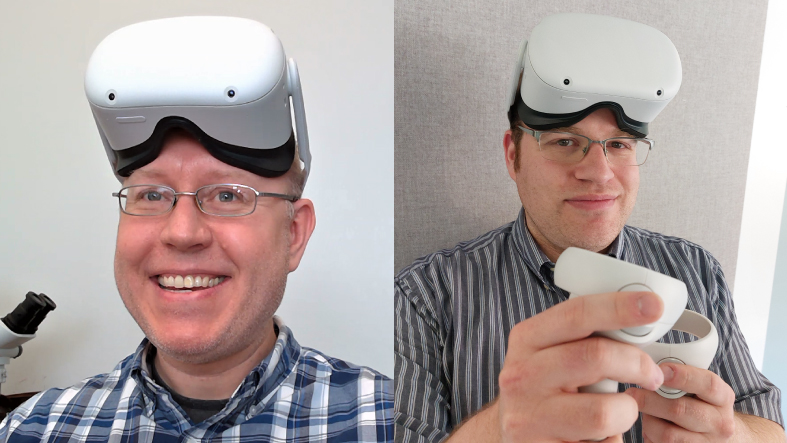
Professors Kyle Belozerov and Derek Jackson, Department of Chemistry, received a Minister’s Award of Excellence in the Future-Proofing Ontario’s Students category. Sponsored by Ontario’s Ministry of Colleges and Universities, the Minister’s Awards of Excellence highlight the incredible work of professors, instructors, staff and graduate students on campus, in the community and beyond. They received the award for their work with virtual reality (VR) in chemistry courses. Motivated by the desire to help students learn the structure and behaviour of complex molecules, they developed a variety of interactive VR activities designed to help students manipulate molecules and research crucial aspects of the structure underlying their reactivity and biological function.
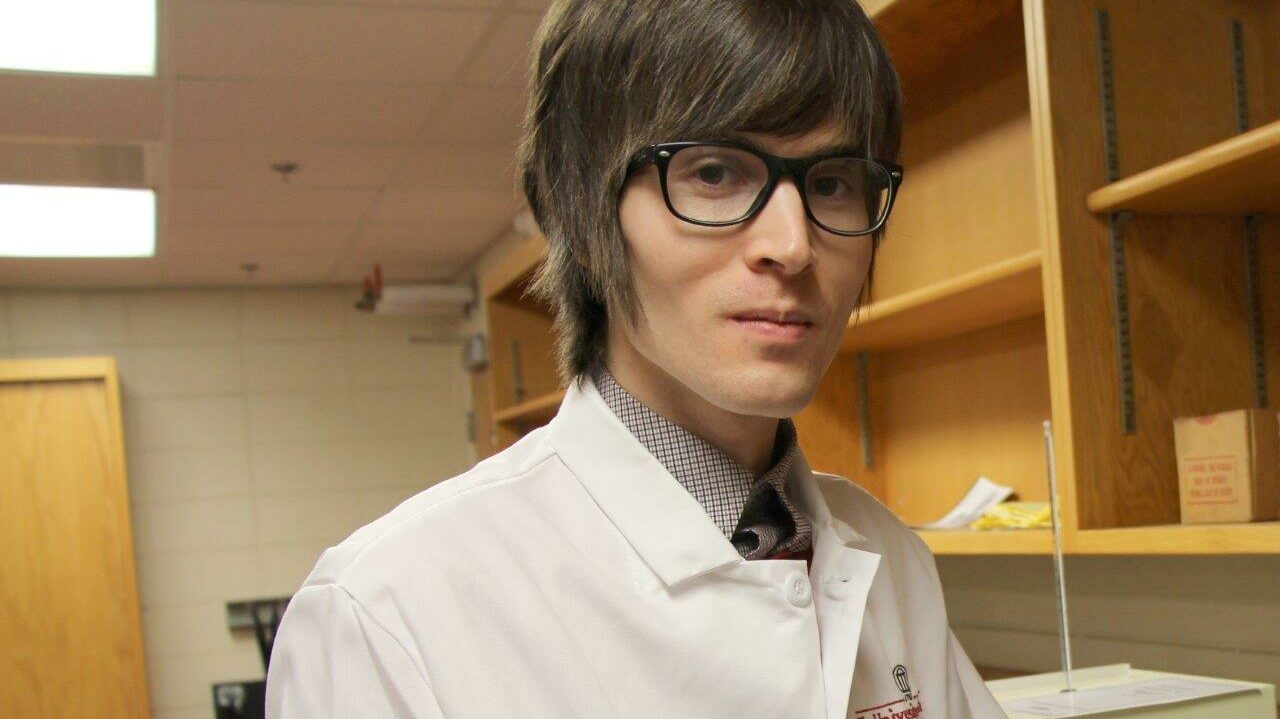
Professor Ryan Hili, Department of Chemistry, received the 2023 Melanie O'Neill Young Investigator Award in Biological Chemistry from the Canadian Society for Chemistry. The award is presented to a scientist residing in Canada who has made a distinguished contribution to biological chemistry while working in Canada. Hili is the York Research Chair in Molecular Evolution. His research interests focus on using DNA to program and encode the synthesis of molecular libraries ranging from small molecules to synthetic biopolymers. By using the principles of Darwinian evolution, his lab can evolve these molecular libraries for desired function, yielding small molecule drugs to treat human disease or antibody mimetics for use in medical diagnostics.
RESEARCH FUNDING
By the Numbers
$20.2 million
Total funding awarded in 2023
$9.1 million
Natural Sciences and Engineering Research Council of Canada
$3.8 million
Canada Research Chairs
$1.9 million
Canadian Institutes of Health Research
$1.5 million
Contracts and industry
$1.3 million
Mitacs and other fellowships
$797 thousand
Provincial, national and international Agencies
$526 thousand
Foundations, societies, and not-for-profits
$380 thousand
Canada Foundation for Innovation, and Ontario Research Fund
$365 thousand
Fields Institute
$350 thousand
Donations
$226 thousand
Social Sciences and Humanities Research Council of Canada
Research Funding Highlights
RESEARCH SPOTLIGHTS
TEACHING & LEARNING
Supporting excellence in teaching and learning
In 2023, our faculty members and staff worked diligently to engage and support our Science instructors in enhancing excellence in teaching and learning, including decolonization, equity, diversity, and inclusion (DEDI) in the classroom.
Associate Dean of Curriculum and Pedagogy Hovig Kouyoumdjian launched a new monthly Teaching & Learning Bulletin for the Faculty of Science community that shares ideas and best practices related to teaching and learning, recent workshops, and upcoming events.
For the 2023-24 academic year, Biology Professor and Pedagogical Innovation Chair in Science Education Tamara Kelly and Educational Development Specialist Ashley Nahornick continued to refine and assess the EDI syllabus/course outline template for instructors that was launched in 2022; the template aims to help instructors enhance EDI and accessibility in the classroom and welcome students into their courses. Kelly and Nahornick provided one-on-one support and training to numerous instructors on adopting the syllabus, and surveyed instructors on their use of it.
The Faculty of Science hosted nearly a dozen events dedicated to teaching and learning in conjunction with the Faculty’s Committee on Teaching & Learning (CoTL), chaired by Professor Robin Marushia in the Department of Science, Technology & Society. These events included a full-day, hybrid Teaching & Learning Symposium featuring an Indigenous speaker, Professor Michelle Hogue (University of Lethbridge), for all Science instructors and graduate students; an “Open Education Mini-Course for Faculty,” presented by Director of Open Scholarship Stephanie Quail and Professor Charlotte de Araujo, Department of Biology; and “Empowering Educators: Strategies for Enhancing Mathematical Literacy among Students,” presented by Professor Andrew Skelton, Department of Mathematics & Statistics. As well, we increased opportunities for our instructors to engage in professional development and learn more about the resources offered through the Faculty; these opportunities included drop-in office hours with Nahornick, informal drop-in lunch sessions with members of CoTL, informal chat sessions for faculty members and graduate students with Kelly and Nahornick, and more.
Together with CoTL and the Committee on Equity, Diversity and Inclusion, Kelly and Nahornick hosted an EDI Science Book Club, where instructors came together to discuss the book “Inclusive Teaching-Strategies for Promoting Equity in the College Classroom.” They also organized EDI Science Reading Group meetings for instructors to read and unpack academic articles on topics of EDI and science.
As well, CoTL introduced a new stream of teaching and learning awards called the Excellence in Educational Leadership Awards, with categories for faculty members and graduate students (read more under Internal Highlights).
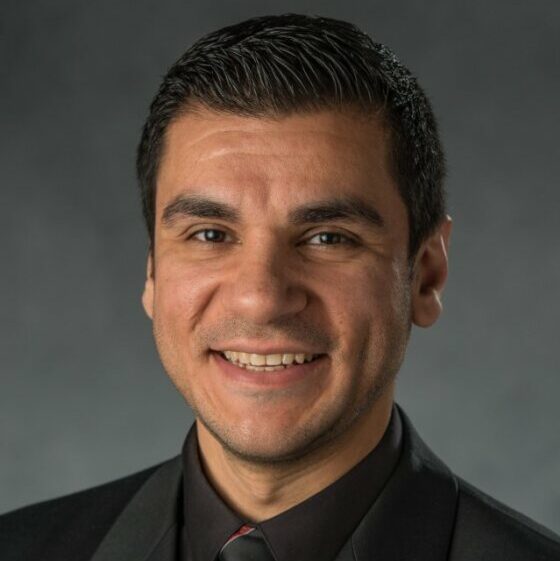
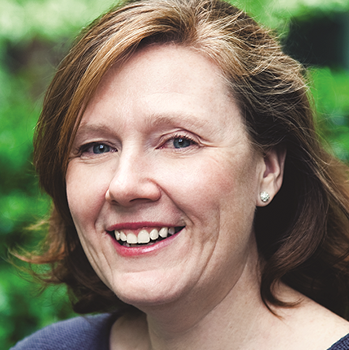

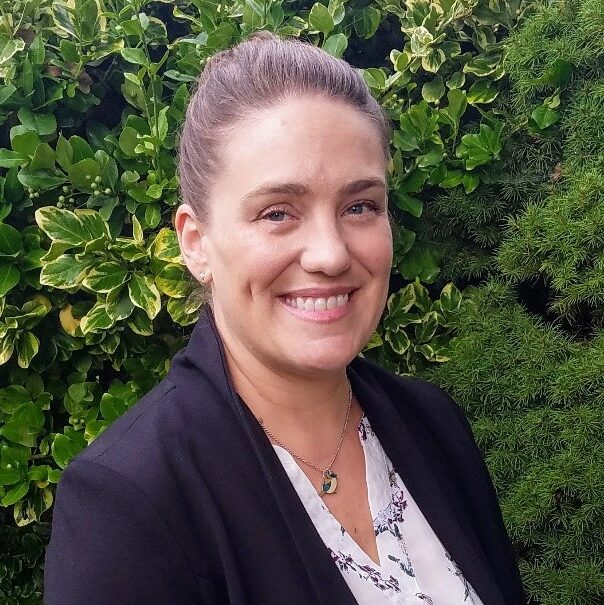
Enhancing accessibility and student experience in labs and classrooms
Thanks to funding from the York University Academic Innovation Fund, our faculty members launched projects focused on improving accessibility in teaching labs and making chemistry courses more engaging.
One project, led by Biology Professor Tamara Kelly and other faculty members from the Departments of Physics & Astronomy and Biology, aims to reduce inequities in laboratories across York University for students with disabilities. Some Science students are registered with Student Accessibility Services and have accommodation in their courses; however, most recommendations are related to lectures and not laboratories. Kelly’s project aims to set the groundwork, and ultimately a framework, for creating more accessible experiential laboratory experiences through a Universal Design for Learning lens, such that all students can engage in positive learning in laboratories.
In 2023, the team completed a review of existing literature in two major areas: accommodations in laboratories, and the experiences of students with disabilities in STEM and supporting students with accommodation. In consultation with accessibility experts, they designed and developed survey questions to assess for student experiences and instructors’ attitudes towards accommodations, and they prepared focus group questions to learn more about accessibility in laboratories from students and instructors. As well, the team created a laboratory accessibility checklist and conducted assessments of the first-year Biology, Chemistry, and Physics laboratory spaces to identify barriers and what was missing to make accommodation easier.
Another project, led by Chemistry Professors Tihana Mirkovic and Hovig Kouyoumdjian, who is also Associate Dean of Curriculum and Pedagogy, is aimed at improving students’ learning and engagement in chemistry classes. The team is focused on using a powerful e-learning tool called Adobe Captivate to transform conventional components in courses to more versatile and dynamic modules that create an interactive learning environment.
“Our goal is to allow students to integrate their conceptual and procedural understanding of their labs through active learning opportunities. We hope that the newly developed modules featuring slides, videos, hotspots, 360° navigation, software simulations and knowledge check assessments will provide a learning environment that motivates our students and maximizes their learning potential,” said Mirkovic.
They are piloting the tool in Introductory Organic Chemistry I (CHEM2020) and Experimental Chemistry II (CHEM3001) and plan to expand its use in other courses in the Department of Chemistry and Faculty of Science.
Math instructors pilot open-access homework platform for students
Supported by the Dean’s Office, including the Faculty of Science IT team, and the Department of Mathematics & Statistics, Professor Andrew McEachern and other instructors began piloting the use WeBWorK – an online, open educational resource – in all sections of a first-year Applied Linear Algebra course (MATH 1025). WeBWorK allows students to practice solving challenging problems as often as they’d like and provides instantaneous feedback. WeBWorK is open source and very customizable; this means it can be downloaded for free, although there are significant costs associated with the server and staff resources. The Faculty of Science is covering these costs to provide the software free of charge to students. A thorough evaluation is set to start after the conclusion of the course.
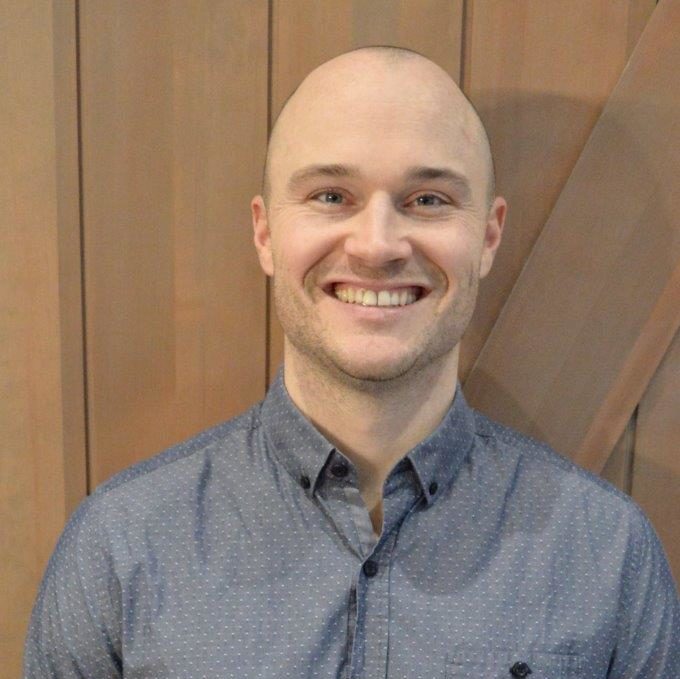
STUDENTS
Faculty of Science medals for high achievement
Undergraduate students Areeba Chaudhry, Sarah Pullano and Nicole Frias received the Faculty of Science Gold and Silver Medals at the Spring Convocation Ceremony in 2023. Pullano and Chaudhry received a Gold Medal, which is presented to Science students graduating with the highest GPA, and Frias received the Silver Medal, which goes to a Science student who has combined the highest degree of academic achievement with the greatest contribution to undergraduate student life at York.

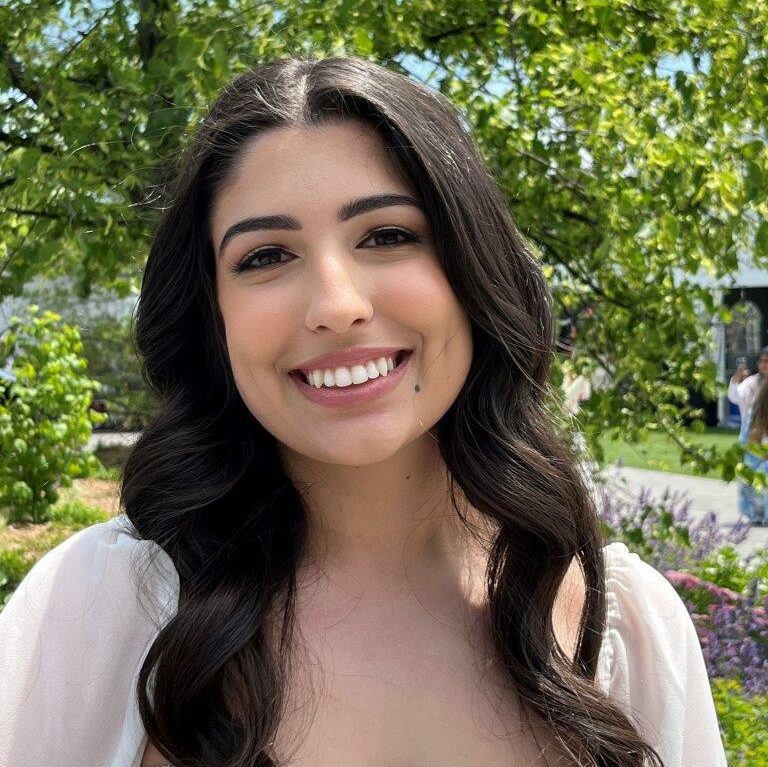
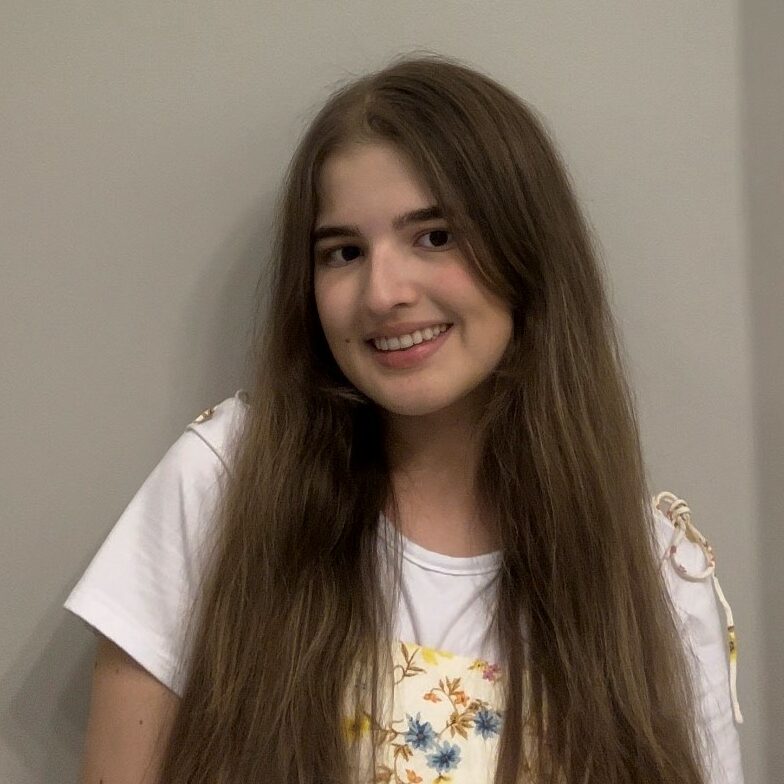
Thesis and dissertation prizes
MSc graduate Melodie Lao and PhD graduate Kathleen Dogantzis received thesis and dissertation prizes from the Faculty of Graduate Studies for their outstanding scholarly work.
Lao received a Master’s Thesis Prize for “Developing an Automated Nitrous Acid (HONO) Platform to Detect Emerging Pollutants in a Commercial and Domestic Environment.”
Dogantzis received a Doctoral Dissertation Prize for “Understanding the Evolutionary Origin and Ancestral Complexity of Honey Bee (Apis mellifera) Populations.” She was also among three York University graduates who received the 2023 Governor General Gold Medals, which recognize the outstanding scholastic achievements of graduate students in Canada.

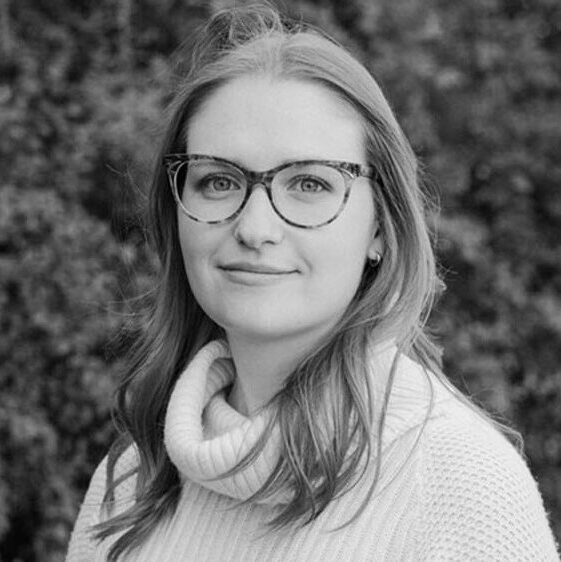
President’s University-Wide Teaching Award
PhD student Farwa Sajadi received the President’s University-Wide Teaching Award (Teaching Assistant category) for enhancing the quality of learning and demonstrating innovation in teaching. She was honoured for being a TA who fosters an academically enriched environment for learning, advancing student critical thinking and implementing creative approaches to promote student scholarship and engagement.

COMMUNITY & ALUMNI
Empowering youth to experience and explore the sciences
Our Science Engagement Programs office delivers engaging programs for youth to explore topics in science, technology, engineering, and mathematics (STEM). Our programs include march break, summer, and PA Day camps that take place within the Faculty of Science at the Keele Campus of York University, as well as programs and workshops in community centres, schools and other educational institutions.
In 2023, more than 8,100 students and teachers engaged in our youth programs – a more than 75 percent increase compared to the previous year:
- 800+ students participated in on-campus programming, including camps and workshops.
- 1,250+ students participated in off-campus programming in libraries, schools, and virtually.
- 2,100+ people attended York University’s Science Rendezvous.
- 3,875+ students participated in CanCode Digital Literacy workshops, a fully-subsidized program offered in partnership with the Government of Canada and Actua.
As well, in 2023, our Science Engagement Programs office collaborated with the Skills for Change - Black Community Access Program to deliver a series of online and in-person STEM workshops for black high school youth. This afterschool program was designed to empower and support Black youth in underserved communities in Toronto who are interested in pursuing careers in STEM. Students engaged in topics including environmental sustainability, biomedical science, space engineering, wearable technology, and more.
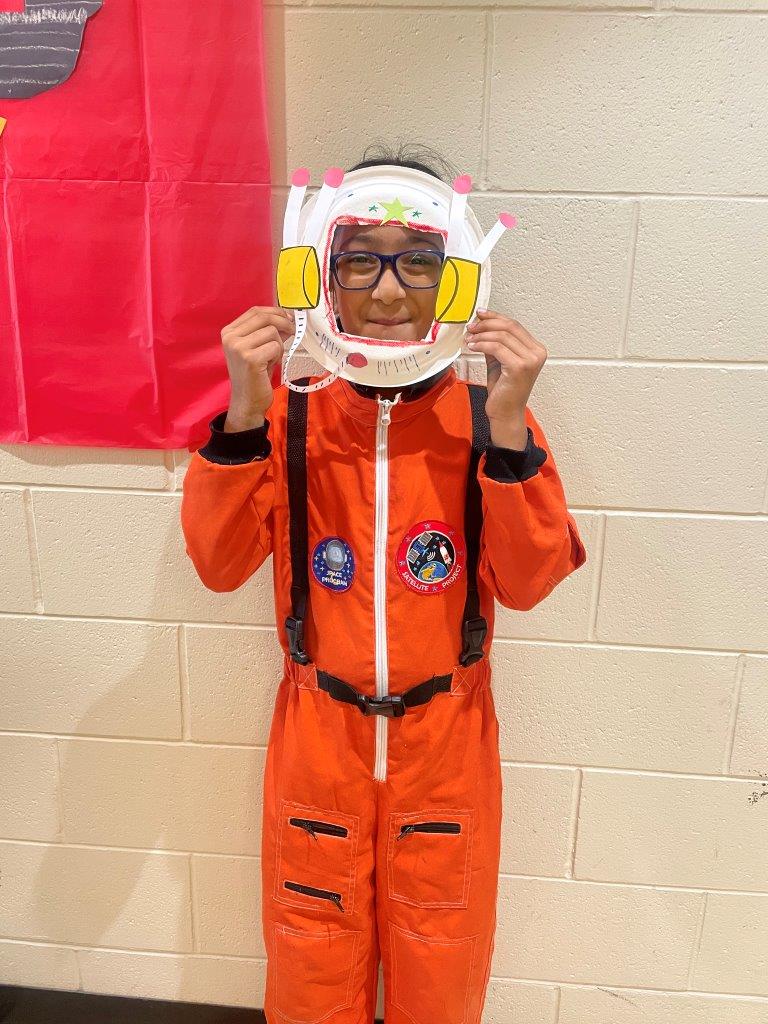
My child was excitedly going through the kits before the program, and each day, concentrated on the experiment at hand with a focus I hardly see during the summer, all the while having fun! She has developed an enthusiasm for science experiments and plans to continue using the kits on her own.”
— GRADE 5/6 MINI-ROBOTICS STUDENT
“My kid had enrolled in the Mini Med program with York University and it was the best experience ever! What stands out, is how much of hands on learning the kids get. It is the practical and experiential learning that made it memorable, valuable and a fun learning for the kids. My daughter has a new sense of appreciation for science. If your kid is a science enthusiast, definitely a camp worth trying out.”
— GRADE 7/8 MINI-MED PARENT
Observatory creates opportunities for local and global engagement
In September 2023, the York University Allan I. Carswell Observatory, directed by Professor Elaina Hyde, officially re-opened for in-person business and outreach again after the completion of a renovation project that featured installing two new robotic domes over its telescopes. It resumed its in-person public tours, which were hugely popular before the pandemic, along with the continuation of its online programming. In 2023, the Observatory hosted eight local high school tours, 22 new public viewing astronomy evenings, 18 grade-school and high-school tour groups, and other special events like Haunted Hydrogen Halloween, which saw over 100 participants. As well, the Observatory held its second annual Astronomer in Residence program in collaboration with Killarney Park, hosting seven residents from May to October 2023.
The facility also launched a new online proposal system in November 2023 that allows researchers, students, and others to apply for time to use its telescopes. They held their first collaborative observation with the European-led Lucky Star team, which studies trans-neptunian objects.
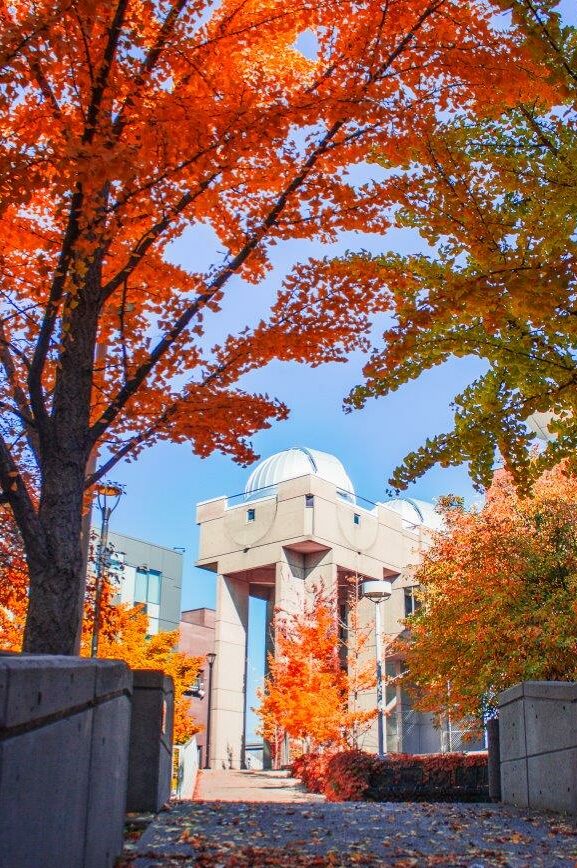
Science graduates among York U's Top 30 Alumni Under 30
Science alumni Batool Barodi (BSc ’19), Clarelle Gonsalves (BSc ’18) and Shalini Iyer (BSc ’20) were named among York University’s 2023 Top 30 Alumni Under 30.
Upon graduation from York, Barodi was selected to represent Canada as a youth delegate at the Open Government Partnership Global Summit 2019. She is now a medical student at Central Michigan University, where she focuses her research on heart transplant surgeries. Barodi also creates videos documenting her journey of becoming a doctor and supporting students who don’t have access to mentorship opportunities.
Gonsalves is a paediatrics resident at the University of Toronto based out of The Hospital for Sick Children. She is dedicated to standardizing and optimizing health outcomes for children who do not readily have access to specialized care. She completed her MD at McMaster University, where she co-developed a workshop for health professionals and trainees aimed at recognizing and speaking up against racism in healthcare and medical education.
One of Iyer’s goals is to help break down systemic biases and barriers in science. At York, she was dedicated to increasing accessibility to STEM education for youth through her work with Let's Talk Science. She has also been actively involved in increasing science accessibility for Black youth in the Jane and Finch community through STEM and career workshops. She is now a PhD student in Neuroscience at the University of British Columbia.
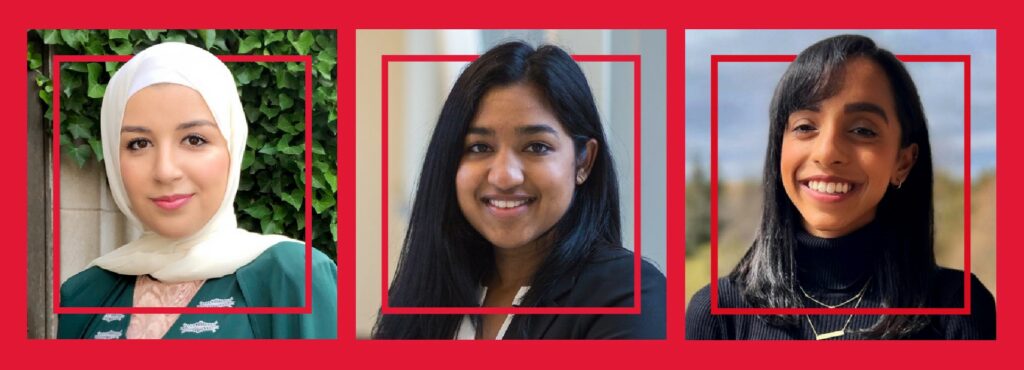
Digital Engagement
In 2023, our Faculty saw positive growth and engagement across its social media and networking channels, including LinkedIn, Instagram, TikTok, Facebook, and X, as well as growth in website traffic across all of our Science sites.
Comparing 2023 to 2022:
21% growth
Social media engagement rate
81% growth
Social media post link clicks
19% growth
Total audience on social media
35% growth
Total website visitors
41% growth
Total webpage views
Top performing social media posts in terms of engagement included:
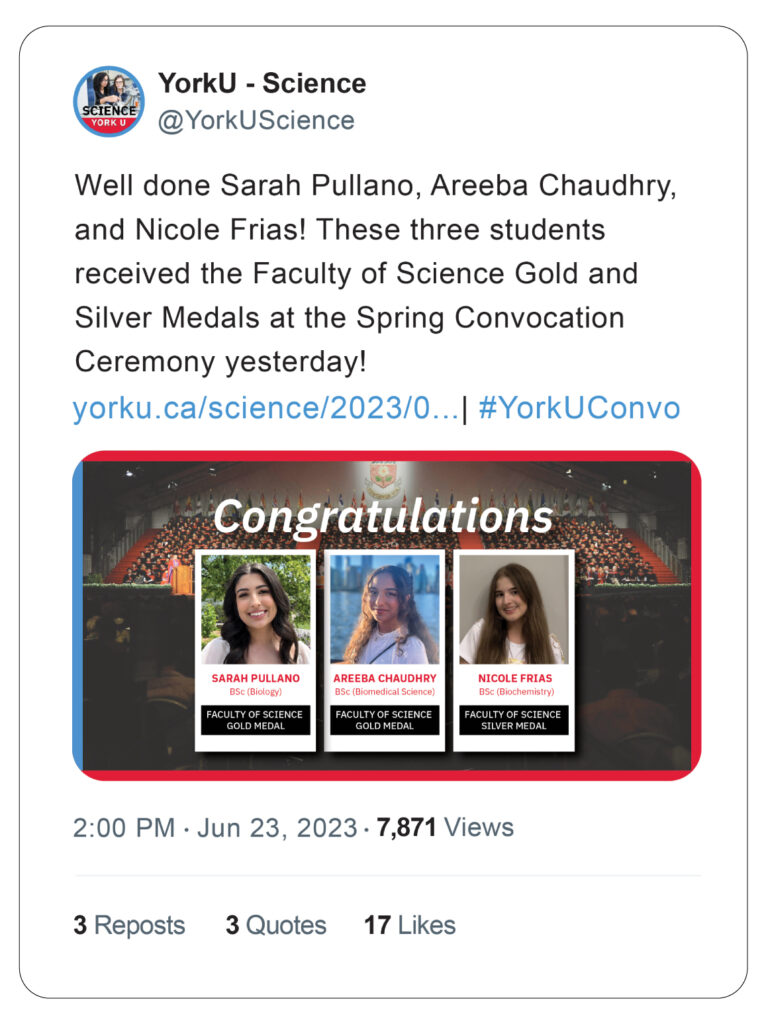

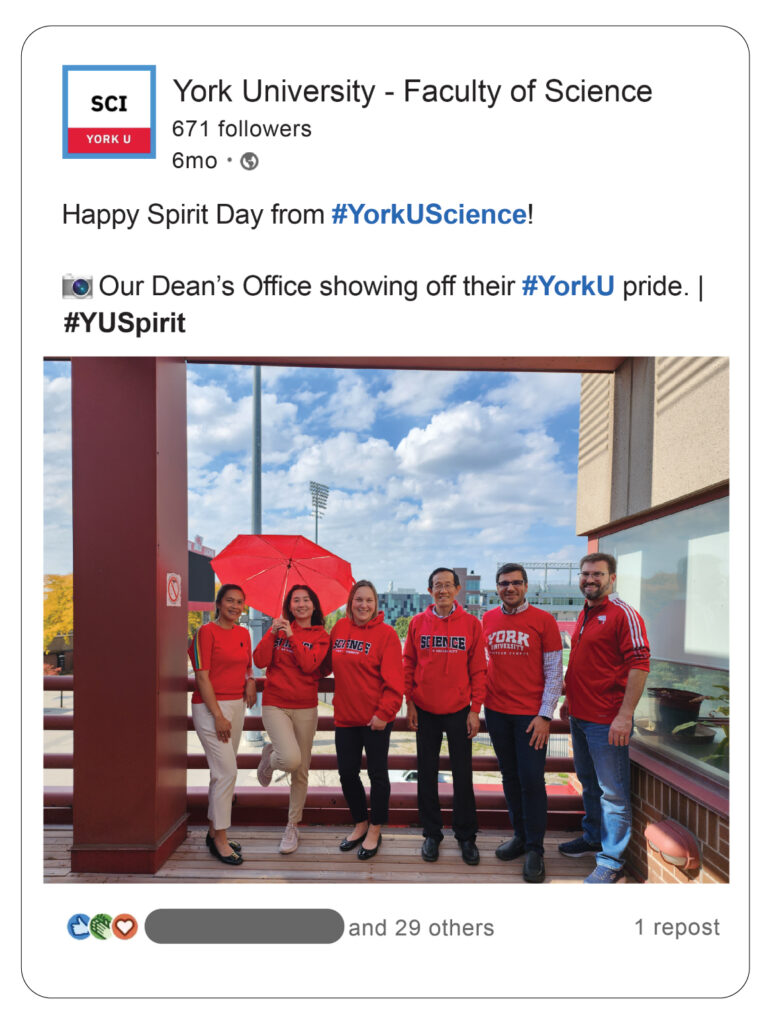
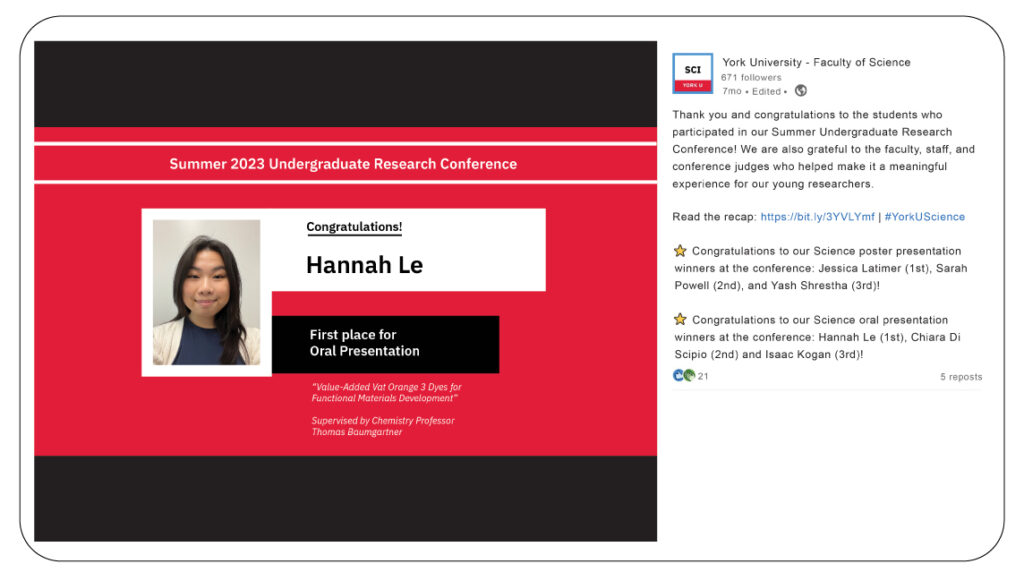
In our internal newsletter, the Dean’s Round-up, +470 highlights were shared in 2023, including faculty, staff and student honours and awards, presentations, new research, new partnerships, media outreach, events and more.



